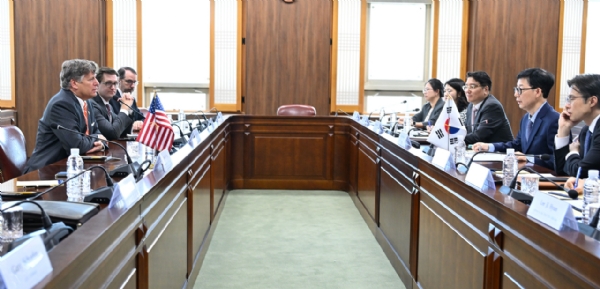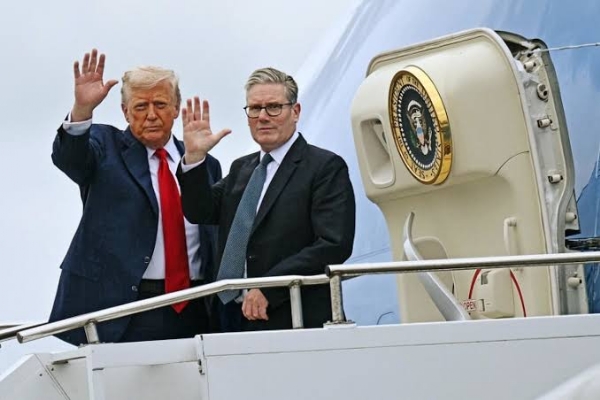
Seoul, 15 September (H.S.): The United States has formally expressed “deep regret” over the mass detention of hundreds of South Korean workers during an immigration raid in Georgia this month, with Deputy Secretary of State Christopher Landau pledging institutional reforms to prevent recurrence and promising enhanced visa measures for Korean professional.
Landau made these unprecedented remarks during a high-level meeting with South Korea’s First Vice Foreign Minister Park Yoon-joo on Sunday, following the return of 316 detained Korean nationals to Seoul last week. The detentions, which occurred at a Hyundai-LG Energy Solution joint venture’s under-construction EV battery plant, triggered a sharp public outcry and diplomatic urgency in South Korea, culminating in the swift return of those held.
According to South Korea’s Foreign Ministry, Landau assured that none of the returnees would face disadvantage should they seek re-entry to the US, and stressed that the incident would serve as “a turning point for institutional improvement” in bilateral relations. He further affirmed that President Trump is closely monitoring the matter and directed authorities to prevent similar episodes in the future.
Vice Minister Park, for his part, called for concrete measures by the US, including the creation of a new visa category for Korean business travelers. He strongly urged the establishment of a South Korea-US working group to address systemic visa challenges facing Korean companies, which remain major investors in the US economy but, paradoxically, face severe hurdles in securing legal work permits for their personnel.
The meeting also reviewed follow-up measures from the late-August South Korea–US summit and broader alliance priorities, with both sides emphasizing the need to align immigration policy with rapidly growing economic ties.Earlier on Sunday, Deputy Secretary Landau met with Foreign Minister Cho Hyun, who originally proposed the visa working group idea during discussions in Washington earlier this week.
Currently, Korean companies rank as top foreign investors in the US, with $21.5 billion committed in 2023 and a $350 billion pledge under a new trade framework. However, most Korean workers rely on short-term business visas (B-1 or ESTA), which are not intended for extended employment—a source of persistent friction for investors and workers alike.Notably, only about 2,000 Korean professionals annually obtain H-1B visas out of 85,000 issued, compounding the perception of systemic challenges for skilled Korean talent in the US market.
Hindusthan Samachar / Jun Sarkar




